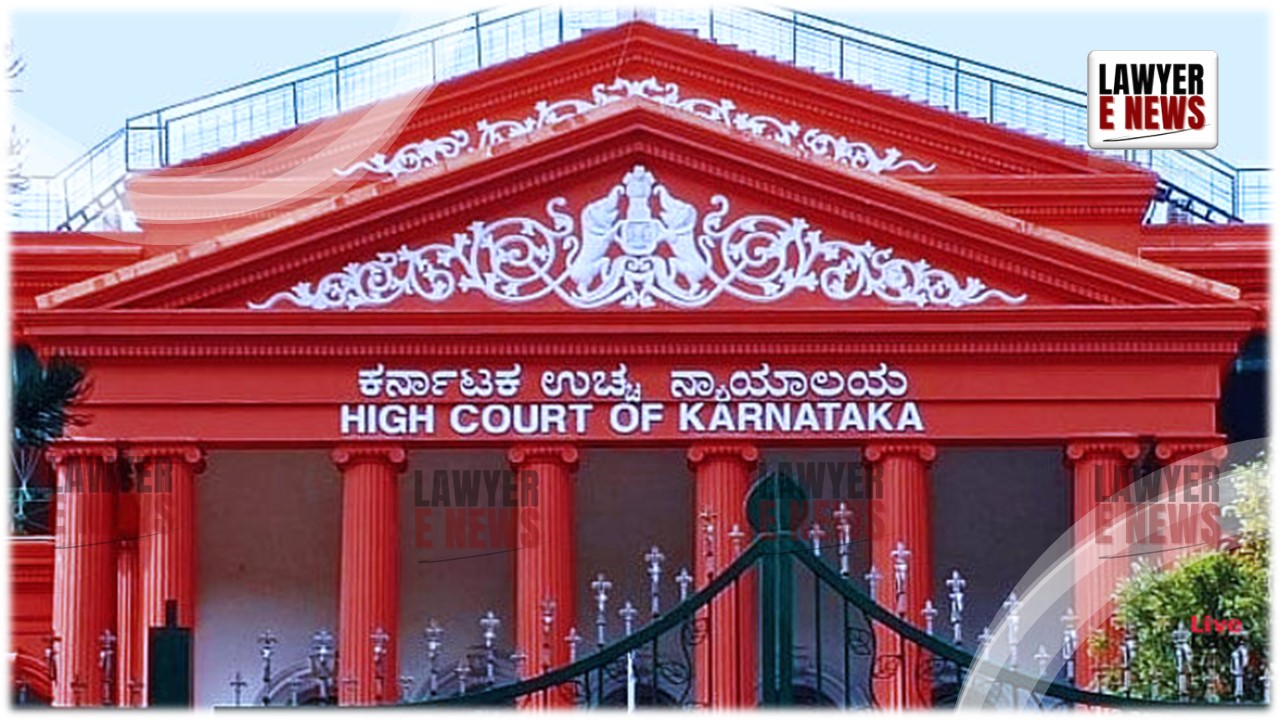-
by Admin
15 February 2026 2:36 AM



“Grant of Approval Under Section 17A of Prevention of Corruption Act Valid”: Karnataka High Court Dismisses Writ Petitions. In a significant judgment, the Karnataka High Court, presided over by Justice S. Sunil Dutt Yadav, dismissed two writ petitions challenging the government’s approval under Section 17A of the Prevention of Corruption Act, 1988, for initiating investigations into allegations of misappropriation of ₹80 crore at the Karnataka Bhovi Development Corporation. The petitioners, Dr. B.K. Nagarajappa and Smt. R. Leelavathi, had served as General Manager and Managing Director, respectively, during the alleged mismanagement.
The court upheld the validity of the approvals, stating that they were based on preliminary material and reflected due application of mind. It also ruled that the approval complied with the statutory requirements of Section 17A and did not warrant judicial interference at this stage.
The petitioners, Dr. B.K. Nagarajappa and Smt. R. Leelavathi, held senior positions at the Karnataka Bhovi Development Corporation during overlapping tenures from 2021 to 2022. Allegations surfaced regarding the misappropriation of ₹80 crore, which was purportedly diverted for personal benefit rather than being used for beneficiaries of government schemes.
Three separate FIRs were registered against the corporation’s officials under various provisions of the Indian Penal Code (IPC), including Sections 406 (criminal breach of trust), 409 (criminal breach of trust by a public servant), and 420 (cheating). Subsequent investigations indicated potential offences under the Prevention of Corruption Act, necessitating government approval under Section 17A for further inquiry.
The petitioners argued that the approval orders were issued without incriminating evidence, proper investigation, or application of mind. They alleged selective targeting and claimed that they were not named in the FIRs.
Justice S. Sunil Dutt Yadav noted that Section 17A of the Prevention of Corruption Act requires prior approval for investigating public servants when alleged offences are related to decisions taken in their official capacity. He emphasized:
“The objective of Section 17A is to protect public servants from harassment for bona fide actions. However, it cannot act as a shield for legally wrong acts.” (Para 12)
The court found that the approval orders were detailed and based on material gathered during preliminary investigations, including witness statements and audit reports, which indicated potential misuse of funds.
The court clarified that judicial review of executive decisions, like approvals under Section 17A, is limited. It observed:
“Interference is permissible only where there is mala fides, lack of jurisdiction, or demonstrable extraneous considerations. The court cannot substitute its judgment for that of the executive.” (Paras 16-17)
The court rejected the petitioners’ claims of non-application of mind, citing the detailed reasoning provided in the approval orders.
The petitioners alleged that they were being selectively targeted while other officials involved were not investigated. The court held that such allegations, even if true, do not affect the legality of the approvals. It noted:
“The State must act against all wrongdoers. However, the legality of the approval granted cannot depend on allegations of selective action.” (Para 49)
The Special Public Prosecutor assured the court that investigations would proceed against all involved officials without discrimination.
The court noted that the approvals were based on preliminary material, including:
Statements of witnesses alleging that funds were diverted for personal benefit.
Reports by internal committees and investigating officers detailing misappropriation during the petitioners’ tenure.
Allegations of conspiracy involving the petitioners and outsourced employees.
“The material presented prima facie indicates the commission of offences, justifying the approval under Section 17A.” (Para 24)
The Karnataka High Court dismissed the writ petitions, holding that:
The approvals under Section 17A of the Prevention of Corruption Act were valid and complied with statutory requirements.
Judicial review was limited to examining the legality of the approval, not the merits of the allegations or the evidence.
The petitioners’ claims of selective targeting and lack of incriminating evidence did not warrant interference at this stage.
Approval under Section 17A is necessary for investigating alleged offences by public servants related to their official duties.
Such approval must be based on material indicating prima facie offences and reflect application of mind.
Courts can only interfere in executive decisions where there is mala fides, lack of jurisdiction, or procedural irregularity.
Approval under Section 17A allows investigation to proceed and does not equate to a finding of guilt against the accused.
The Karnataka High Court’s ruling reinforces the principle that Section 17A of the Prevention of Corruption Act is a safeguard for public servants but not a shield for wrongdoing. The judgment underscores the limited scope of judicial review in such cases and the importance of allowing investigations to proceed based on preliminary material.
Date of Decision: November 12, 2024
